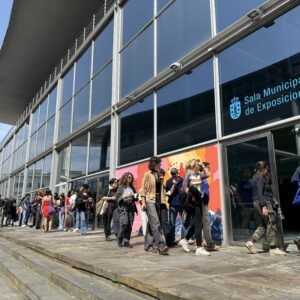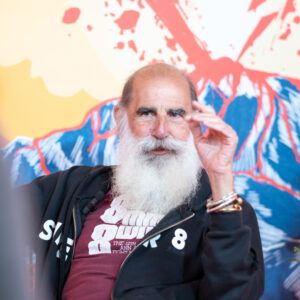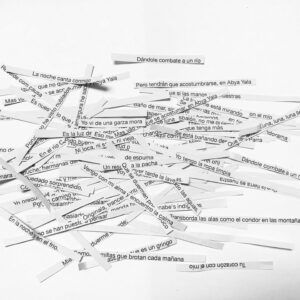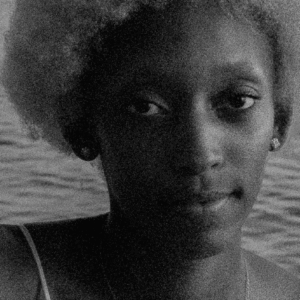
If there is a work in the field of cinema and the arts that looks to the future, this is undoubtedly the one that appeals to the transmission of knowledge and the support of emerging talent. Offering alternatives to the processes and industrial approaches (those that abound in the use of film schools), strongly hierarchical and compartmentalized, is indispensable. In this meeting we convened a group of educational and residential projects in which an open mind comes first, and in which there is a special place for experimental cinema and new forms of audiovisual creation.
One of them is the project (newly) born in 2017, the Elias Querejeta Zine Eskola, which wants to break with the hierarchical idea of training technical teams, which is what is followed in the traditional models of film school. The idea, with the three specialties with which it is born (Archive, Curatorial and Creation) is to stimulate the emergence of students with an integral view of the cinema. Clara Sánchez-Dehesa, responsible for the archive area, will talk about all of this.
If all the projects share one thing, it is that integral vision of generating students with autonomous views and critical thinking, beyond the industrial models. The case of the Master LAV, school of Madrid created and directed by Pablo Useros, consists, on the one hand, of an academic program that provides experiences and references, with special focus on experimental proposals, and on the other hand, of the creation of a work supervised during its artistic process. Based more on the process than the method, LAV seeks to broaden the horizons of its students and develop their analytical skills, critical approach and artistic commitment.
This idea of cinema as a process is also the one put into practice by the Canadian Phil Hoffman in his Film Farm. Since 1994, the filmmaker and educator Philip Hoffman has been conducting this annual retreat in a rural community in Ontario, where he not only disseminates artisanal and ecological film production methods in film format, but also promotes that form of work based on the process, reflection and sharing, rather than hierarchies or the script, and the approach to film from the personal.
Finally, and with the idea of providing tools (in terms of knowledge and work tools), LIFT (Liaison of the Independent Filmmakers of Toronto) is an audiovisual cooperative that has been operating since 1981, whose focus is so much on providing means of production to the community of filmmakers in Toronto, as well as training and disseminating knowledge about film, video and interactive creation through workshops. LIFT also offers several residential programs to local and international filmmakers, with special emphasis in the experimental practices (one of them, BAICC, in collaboration with (S8) and Acción Cultural Española.) The filmmaker and programmer Chris Kennedy is its executive director.
Saturday, June 2 at 1:00 pm at Atalaya (Café Mirador, Jardines de Méndez Núñez)





